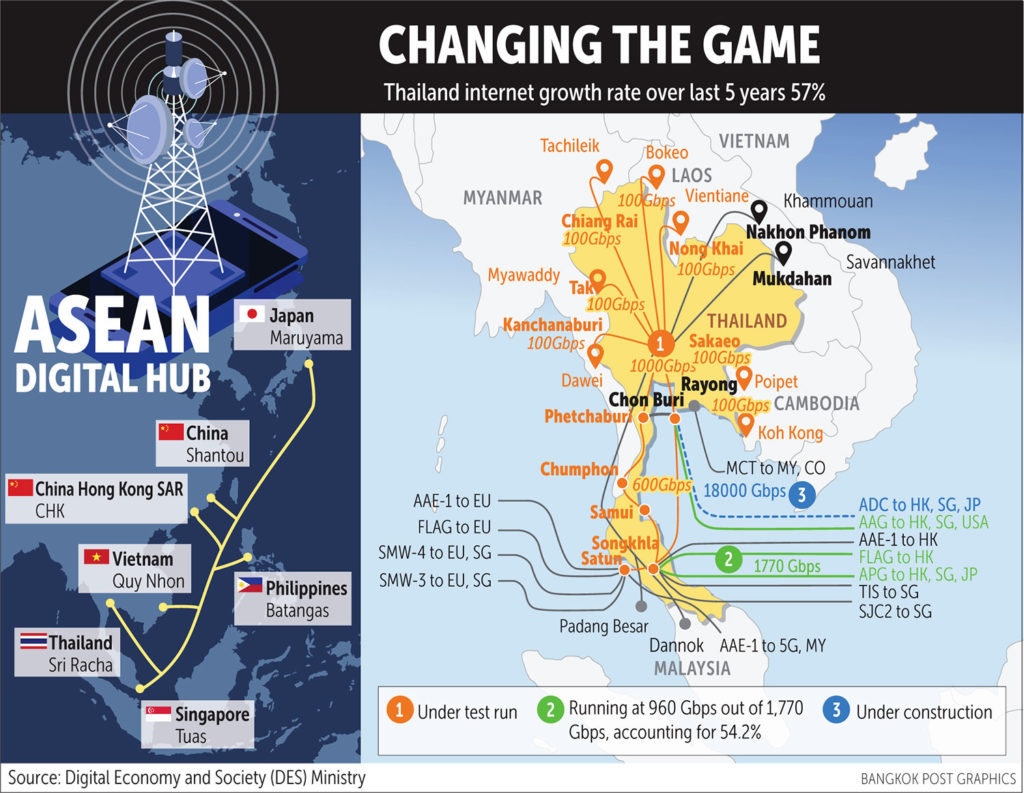
Curious about what the internet and communication facilities are like in Thailand? Well, you’re in luck! In this article, we’ll delve into the world of internet and communication in Thailand, discussing everything from the availability of Wi-Fi to the quality of mobile networks. Whether you’re planning a trip to Thailand or simply want to learn more about the country’s technological landscape, this article will provide you with all the information you need. So, sit back, relax, and get ready to explore the digital realm of Thailand!
If you’re keen to discover the ins and outs of internet and communication facilities in Thailand, stay tuned for our in-depth analysis. We’ll discuss the prevalence and speed of internet connections, the coverage and reliability of mobile networks, and the availability of Wi-Fi hotspots across the country. Whether you’re a digital nomad looking for a place to work remotely or a traveler who wants to stay connected while exploring the wonders of Thailand, we’ll provide you with valuable insights that will make your experience seamless and enjoyable. So, get ready to dive into the world of technology in Thailand and discover what this vibrant country has in store for you!
This image is property of unesdoc.unesco.org.
Overview of Internet and Communication Facilities in Thailand
Thailand, known for its stunning beaches and vibrant culture, has also emerged as a prominent player in the digital landscape. With the advancement of technology, the importance of internet and communication facilities in modern society cannot be overstated. Thailand has recognized this and has made significant progress in establishing a robust infrastructure to cater to the growing digital needs of its citizens and businesses.
Internet Infrastructure in Thailand
Thailand’s internet infrastructure has witnessed significant growth in recent years. The country has a strong backbone of fiber-optic cables that connects major cities and towns. This has contributed to improved data transmission speeds and increased reliability of internet services. Moreover, Thailand has a competitive market of Internet Service Providers (ISPs) that contribute to the development of internet infrastructure across the country.
Internet Speed and Connectivity in Thailand
In terms of internet speed, Thailand has shown remarkable progress. According to recent data, the average internet speed in the country stands at around 40 Mbps, which is considered above the global average. This has allowed users to access online content, stream videos, and engage in real-time communication more seamlessly. However, internet connectivity can sometimes be affected by factors such as heavy internet traffic during peak hours or network congestion.
Efforts have been made to improve internet speed and coverage in Thailand. The government has introduced policies and initiatives to encourage the development and expansion of broadband networks. Additionally, investments in mobile network infrastructure have led to improved connectivity, especially in rural areas, allowing more people to access the internet.
Availability and Access to Internet in Thailand
Internet availability in urban areas of Thailand is relatively high, with a majority of households having access to internet services. However, challenges persist in rural regions where the internet infrastructure is less developed. This digital divide is a barrier to equal access to information and opportunity for those living outside major cities.
The Thai government has recognized the importance of bridging this gap and has implemented various initiatives to improve internet access in rural areas. Projects such as the National Broadband Network and the Community Internet Program aim to provide internet connectivity to remote communities and increase digital inclusion.

This image is property of i0.wp.com.
Digital Communication Tools in Thailand
Thailand embraces a wide range of digital communication tools. Popular communication apps and platforms like Line, WhatsApp, and Facebook Messenger are extensively used by Thai citizens for personal and professional communication. These platforms allow users to exchange messages, make voice and video calls, and share multimedia content, enhancing connectivity and fostering social interactions.
Social media usage in Thailand is also on the rise. Platforms such as Facebook, Instagram, and Twitter have gained significant popularity among Thai users. Social media has become a powerful tool for sharing information, promoting businesses, and connecting with others.
Furthermore, e-commerce and online payment systems have experienced rapid growth in Thailand. Platforms like Lazada, Shopee, and Grab have revolutionized the way people shop, offering a convenient and secure online shopping experience. Payment gateways such as TrueMoney and PromptPay have made online transactions easier and more accessible to all.
Internet Regulations and Censorship in Thailand
Thailand has implemented certain regulations governing internet usage and online content. These regulations aim to ensure the responsible use of the internet, protect citizens’ rights, and maintain national security. However, there have been concerns regarding freedom of speech and censorship.
The Computer Crime Act and the Cybersecurity Act are two main legislations that regulate online activities in Thailand. They address issues such as unauthorized access, fraudulent activities, and defamation. While these laws have their merits, there have been instances where they have been used to suppress dissent and curtail freedom of expression.
Efforts are underway to strike a balance between security and freedom on the internet. Civil society organizations and activists are advocating for more transparency and accountability in the enforcement of internet regulations. The government, on the other hand, is taking steps to ensure that the regulations are interpreted and implemented in a fair and unbiased manner.

This image is property of static.bangkokpost.com.
Cybersecurity in Thailand
As with any country in the digital age, Thailand faces cybersecurity threats and challenges. Cyberattacks targeting individuals, businesses, and critical infrastructure have become more sophisticated and prevalent. These threats include malware attacks, phishing attempts, and hacking incidents.
The Thai government has recognized the importance of cybersecurity and has implemented various measures to protect the digital landscape. Initiatives such as the Thailand Cybersecurity Act aim to develop a comprehensive cybersecurity framework to safeguard public and private networks. The government also works closely with international partners to exchange information and enhance capabilities in combating cyber threats.
To ensure online safety and security, individuals are advised to take proactive measures. This includes using strong passwords, regularly updating software, and being cautious when sharing personal information online. By practicing good cybersecurity habits, individuals can contribute to safeguarding their digital presence.
Digital Transformation and Innovation in Thailand
Thailand’s digital transformation has not only impacted individual lives but also contributed to the country’s economic development. The government has recognized the potential of technology in driving innovation, productivity, and competitiveness across industries.
To promote digital transformation, the government has introduced several initiatives. The Thailand 4.0 policy aims to leverage digital technologies to transform traditional industries and promote innovation-driven growth. The Eastern Economic Corridor (EEC) also focuses on attracting investment in high-tech industries such as robotics, artificial intelligence, and biotechnology.
The tech startup ecosystem in Thailand has witnessed rapid growth in recent years. Startups are driving innovation in various sectors, including e-commerce, fintech, health tech, and agritech. Government support and funding programs have created a conducive environment for startups to thrive and contribute to the country’s digital economy.

This image is property of images.asiahighlights.com.
International Collaboration in the Digital Sphere
Thailand actively participates in international digital initiatives and collaborates with other countries to foster technological cooperation. The government recognizes the importance of global partnerships in driving innovation and harnessing the benefits of digitalization.
Bilateral cooperation agreements have been established with numerous countries, focusing on areas such as e-commerce, cybersecurity, and digital trade. These collaborations facilitate knowledge sharing, capacity building, and exchange of best practices, enhancing Thailand’s digital capabilities.
Conclusion
In conclusion, Thailand has made significant strides in developing its internet and communication facilities. With a robust internet infrastructure, improved connectivity, and a wide range of digital communication tools, Thailand has embraced the digital age. While challenges such as internet access in rural areas and concerns regarding internet regulations persist, the Thai government is actively working towards bridging the digital divide and striking a balance between security and freedom on the internet. With ongoing digital transformation, Thailand is poised to further harness the potential of technology and innovation, contributing to its economic growth and global competitiveness.

This image is property of s3.mordorintelligence.com.







